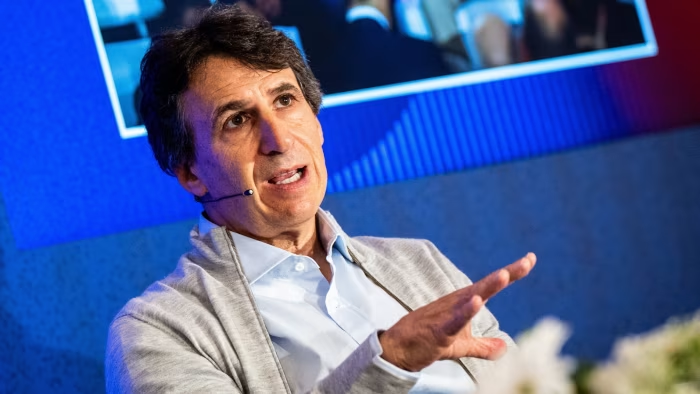Unlock the Editor’s Digest for free
Roula Khalaf, Editor of the FT, selects her favourite stories in this weekly newsletter.
Top US financiers have warned of an erosion in lending standards after credit markets were shaken by the collapse of First Brands Group and Tricolor Holdings.
Apollo Global Management chief executive Marc Rowan said the unravelling of the two businesses followed years in which lenders had sought out riskier borrowers.
“It does not surprise me that we are seeing late-cycle accidents,” Rowan said on Tuesday. “I think it’s a desire to win in a competitive market that sometimes leads to shortcuts.”
Last month’s failure of First Brands and subprime auto lender Tricolor has reverberated across credit markets and left investors such as Blackstone and PGIM, as well as major banks including Jefferies, nursing heavy losses.
It has also prompted further scrutiny of the private capital industry and the lack of transparency around borrowers, which tend to be highly levered with debt.
“In some of these more levered credits, there’s been a willingness to cut corners,” Rowan told the Financial Times Private Capital Summit in London.
Both Rowan and Blackstone president Jonathan Gray pointed the finger at banks for having amassed exposure to First Brands and Tricolor, but said the collapses were not signs of a systemic issue. “What’s interesting is both of those were bank-led processes,” Gray told the same FT conference, rejecting “100 per cent” the “idea that this was a canary in the coal mine” or a systemic problem.
Far from championing First Brands, Apollo went so far as to build a short position against debt linked to the group prior to its collapse, meaning it would profit if the company failed to repay loans. “Most of the announced holders of risk are, in fact, financial institutions,” said Rowan.
Banks and private capital firms have been at odds in recent years as businesses have increasingly turned to private credit for their borrowing needs. Traditional lenders have labelled the shift regulatory arbitrage and complained that non-bank financial institutions are too lightly regulated.
But First Brands and Tricolor have exposed how both sides are intertwined through complex financial structures that can obfuscate who holds the underwriting risk, especially as bank lenders aim to maintain their market share.
JPMorgan Chase chief executive Jamie Dimon echoed some of the concerns on Tuesday as the bank reported strong earnings that were marred by a $170mn hit from Tricolor’s collapse.
“My antenna goes up when things like that happen. I probably shouldn’t say this but when you see one cockroach there are probably more,” he said. “There clearly was, in my opinion, fraud involved in a bunch of these things, but that doesn’t mean we can’t improve our procedures,” he added, acknowledging that the Tricolor exposure “was not our finest moment”.
Meanwhile, the IMF on Tuesday called for regulators to focus on bank exposure to the sector, noting that “banks are increasingly lending to private credit funds because these loans often deliver higher returns on equity than traditional commercial and industrial lending”.







